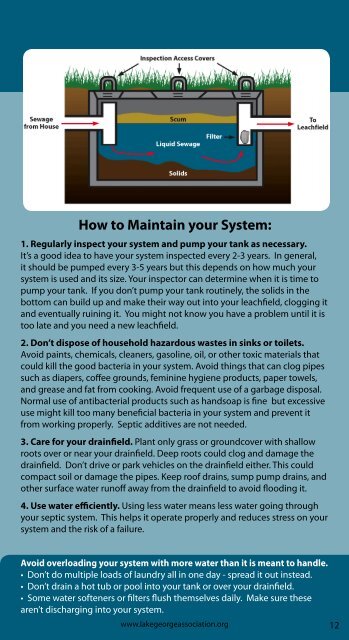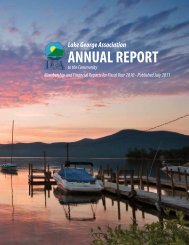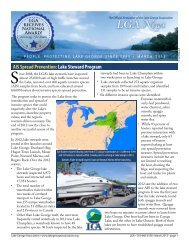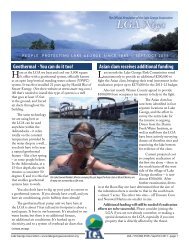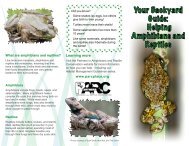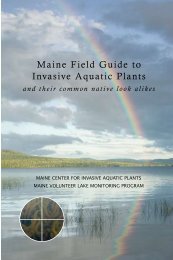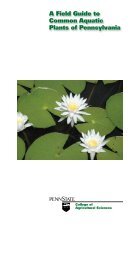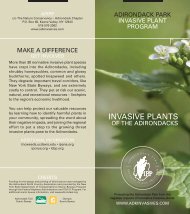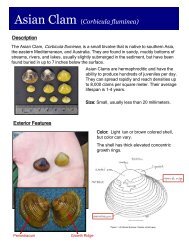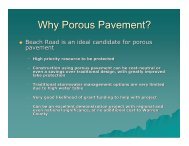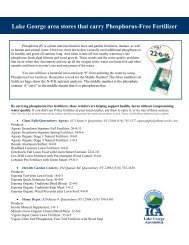"A Homeowner's Guide to Lake-Friendly Living". - Lake George ...
"A Homeowner's Guide to Lake-Friendly Living". - Lake George ...
"A Homeowner's Guide to Lake-Friendly Living". - Lake George ...
You also want an ePaper? Increase the reach of your titles
YUMPU automatically turns print PDFs into web optimized ePapers that Google loves.
How <strong>to</strong> Maintain your System:<br />
1. Regularly inspect your system and pump your tank as necessary.<br />
It’s a good idea <strong>to</strong> have your system inspected every 2-3 years. In general,<br />
it should be pumped every 3-5 years but this depends on how much your<br />
system is used and its size. Your inspec<strong>to</strong>r can determine when it is time <strong>to</strong><br />
pump your tank. If you don’t pump your tank routinely, the solids in the<br />
bot<strong>to</strong>m can build up and make their way out in<strong>to</strong> your leachfield, clogging it<br />
and eventually ruining it. You might not know you have a problem until it is<br />
<strong>to</strong>o late and you need a new leachfield.<br />
2. Don’t dispose of household hazardous wastes in sinks or <strong>to</strong>ilets.<br />
Avoid paints, chemicals, cleaners, gasoline, oil, or other <strong>to</strong>xic materials that<br />
could kill the good bacteria in your system. Avoid things that can clog pipes<br />
such as diapers, coffee grounds, feminine hygiene products, paper <strong>to</strong>wels,<br />
and grease and fat from cooking. Avoid frequent use of a garbage disposal.<br />
Normal use of antibacterial products such as handsoap is fine but excessive<br />
use might kill <strong>to</strong>o many beneficial bacteria in your system and prevent it<br />
from working properly. Septic additives are not needed.<br />
3. Care for your drainfield. Plant only grass or groundcover with shallow<br />
roots over or near your drainfield. Deep roots could clog and damage the<br />
drainfield. Don’t drive or park vehicles on the drainfield either. This could<br />
compact soil or damage the pipes. Keep roof drains, sump pump drains, and<br />
other surface water runoff away from the drainfield <strong>to</strong> avoid flooding it.<br />
4. Use water efficiently. Using less water means less water going through<br />
your septic system. This helps it operate properly and reduces stress on your<br />
system and the risk of a failure.<br />
Avoid overloading your system with more water than it is meant <strong>to</strong> handle.<br />
• Don’t do multiple loads of laundry all in one day - spread it out instead.<br />
• Don’t drain a hot tub or pool in<strong>to</strong> your tank or over your drainfield.<br />
• Some water softeners or filters flush themselves daily. Make sure these<br />
aren’t discharging in<strong>to</strong> your system.<br />
www.lakegeorgeassociation.org<br />
12


